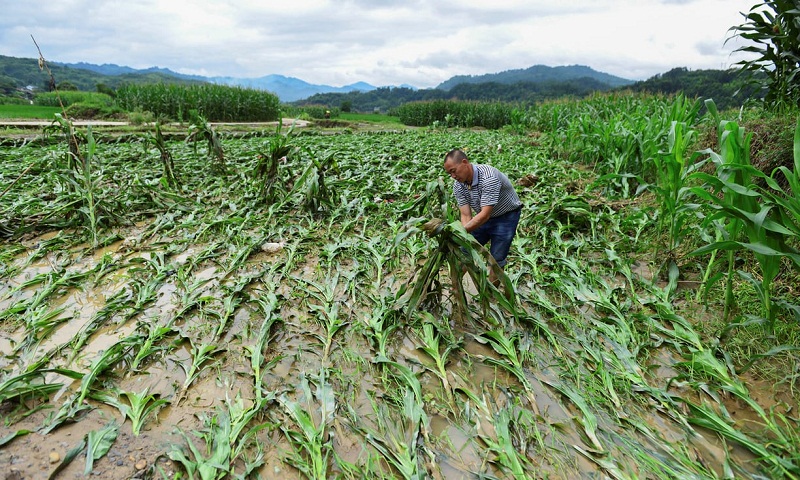Maize, rice, wheat: alarm at rising climate risk to vital crops

Simultaneous harvest failures in key regions would bring global famine, says the Met Office. Governments may be seriously underestimating the risks of crop disasters occurring in major farming regions around the world, a study by British researchers has found. The newly published research, by Met Office scientists, used advanced climate modelling to show that extreme weather events could devastate food production if they occurred in several key areas at the same time. Such an outcome could trigger widespread famine. The scientists, led by Chris Kent, of the Met Office, focused their initial efforts on how extreme weather would affect maize, one of the world’s most widely grown crops. Heat and drought were the prime risks, although flooding was also included in the analysis. The group found there is a 6% chance every decade that a simultaneous failure in maize production could occur in China and the US – the world’s main growers – which would result in widespread misery, particularly in Africa and south Asia, where maize is consumed directly as food. “The impact would be felt at a global scale,” Kent told the Observer. “This is the first time we have been able to quantify the risk. It hasn’t been observed in the last 30 years, but the indications are that it is possible in the current climate.” An example of the kind of disaster that could occur is provided by the maize harvests that failed last year in Africa. Communities in Zambia, Congo, Zimbabwe, Mozambique and Madagascar were affected and six million people were left on the brink of starvation. A joint failure of China and America’s maize harvest would have a far greater impact. Having studied the risks facing maize production, the group is now following up this work by studying climate impacts on the world’s other staple crops – in particular rice, wheat and soya beans – in order to assess how weather extremes could affect their production. According to the UN Food and Agriculture Organisation, maize, rice and wheat together make up 51% of the world’s calorie intake. Billions of people rely on these crops for survival. Any disruption to their production would have calamitous consequences. The trouble is that crop-growing methods and locations have changed considerably over time, as has the climate and the probability of extreme events, Kent told the Observer. “This means the number of relevant observations to the present-day growing of stable crops has been reduced, and that limits our ability to have useful estimates of the risks to the growing of these crops.”
Read More:
http://www.theguardian.com/environment/2017/jul/15/climate-change-food-famine-study

